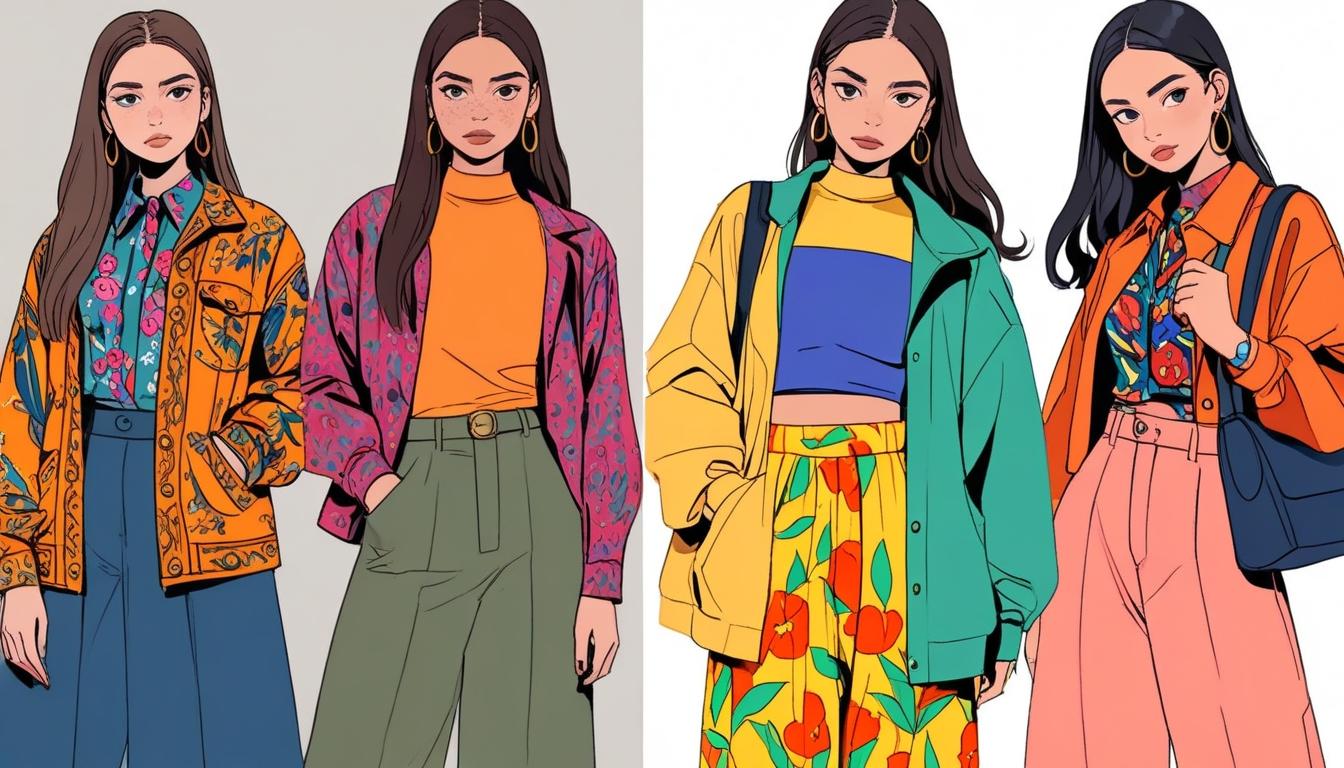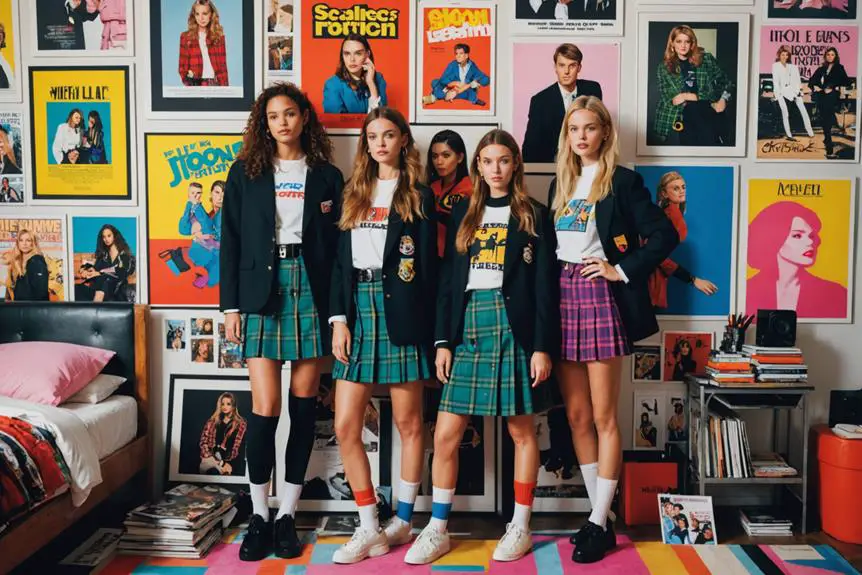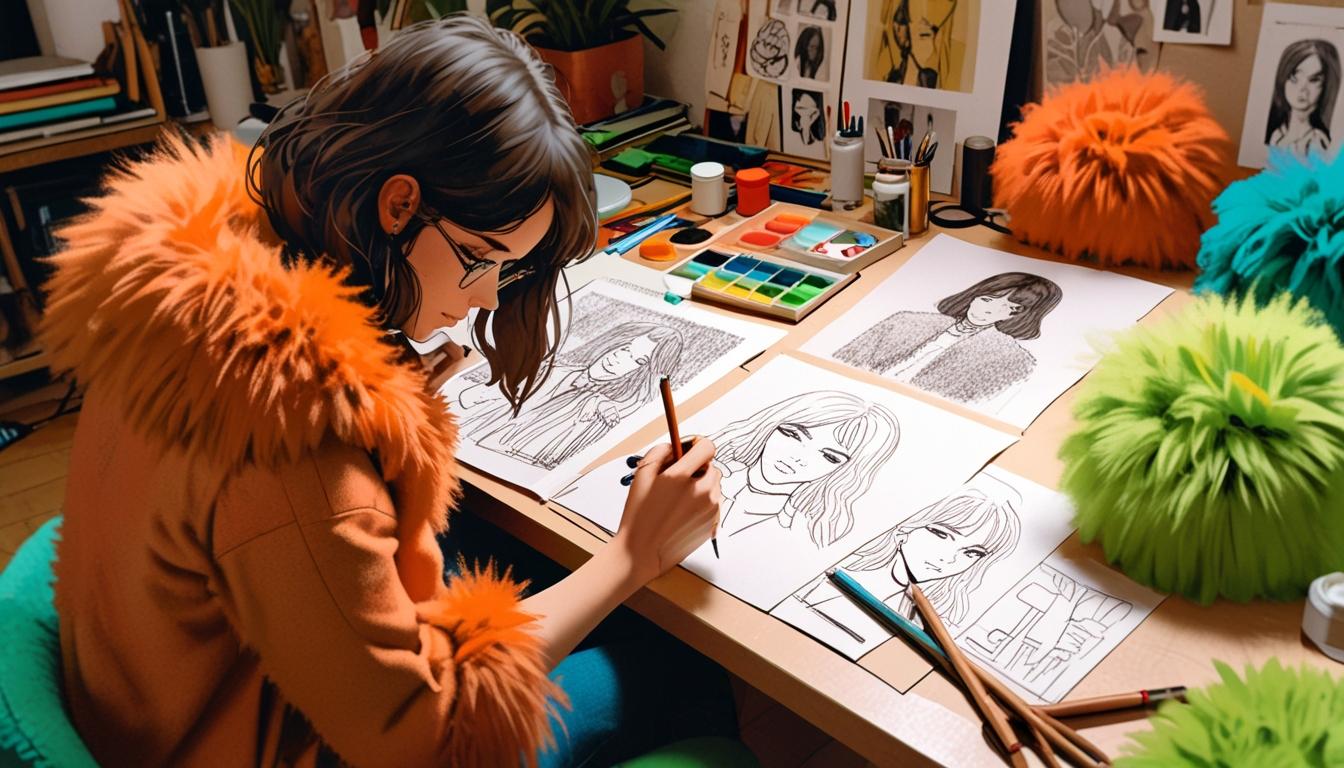University of Michigan student Oummu Kabba reflects on her experiment of wearing the same outfit for ten days, revealing insights into her relationship with clothing and identity.
In a personal essay featured in The Michigan Daily, University of Michigan student Oummu Kabba shares her experience with a unique experiment: wearing the same outfit for ten consecutive days. This undertaking arose from a deep-seated struggle with her relationship to fashion, particularly the pressures and expectations surrounding clothing choices that she has felt throughout her life.
Kabba reflects on her past experiences with clothing, referencing her upbringing in a modest and practical household where fashion was not a vehicle for self-expression but rather a matter of functionality. She describes how, during high school, her clothing choices were often dictated by implicit standards, preventing her from fully exploring her own style. Upon entering college, she embraced the idea of fashion as a form of freedom and creativity. However, over time, this freedom became burdensome, as daily outfit selection transformed into a tedious chore.
After experiencing what Kabba terms “fashion fatigue,” she decided to reset her perspective by committing to wear the same outfit for ten days. On the first day, she faced the challenge of selecting a practical outfit suitable for various activities, ultimately settling on a long-sleeve navy shirt, wide-legged brown pants, and black shoes. Throughout the initial days, Kabba experienced a longing for creative expression that she hadn’t anticipated, revealing the underlying value of choices in fashion that she had taken for granted.
As she progressed through her experiment, Kabba detailed the emotional and psychological effects of wearing the same attire daily. By the fourth day, she noted a warped sense of time and an increased awareness of how clothing serves as a conversation starter and a representation of personal identity. She described the daily repetition as a kind of purgatory, where her outfit conveyed little beyond the bare fact of her existence.
Kabba’s reflections on the outfit became more profound by Day 5, as she developed an unexpected intimacy with her clothing. She described ironing her pants as a means of finding control amidst chaos, evoking memories of her high school days and recognizing the contrasting pressures placed upon her compared to those faced by her male counterparts.
By the sixth day, Kabba found herself grappling with societal perceptions of outfit repeating and the associated embarrassment. This discomfort highlighted the pressures she internalized about clothing representation and expectations. In a momentary encounter at the university dining hall, she felt compelled to hide under her winter coat upon recognizing a classmate, illustrating the internalized anxieties she faced regarding judgment from others.
As her experiment neared completion, Kabba expressed a transformation in her feelings toward the outfit she once viewed neutrally. By the end of the ten days, she began to associate the clothing with empowerment, confidence, and a refreshed sense of self. The experience shifted her perspective on fashion from one of obligation to a more fluid and fulfilling understanding of personal expression.
Kabba’s essay concludes with an acknowledgment of her newfound appreciation for clothing and the choice it represents. While she looks forward to creatively engaging with fashion once again, she has learned the importance of taking her time in navigating the complexities of self-presentation in a world where clothing often conveys far more than just fabric and style.
Source: Noah Wire Services




Hi! I just want to give you a huge thumbs up for your excellent info you
have here on this post. I am returning to your web site for more soon.
casino en ligne
Spot on with this write-up, I honestly think this site needs much more attention. I’ll probably be returning to read more, thanks for the information!
casino en ligne fiable
Appreciation to my father who informed me about this website, this blog is truly remarkable.
casino en ligne
This is the right website for everyone who would like to find out about this topic.
You understand a whole lot its almost hard to argue with you (not that I personally will need to…HaHa).
You certainly put a fresh spin on a subject which has been discussed for ages.
Great stuff, just excellent!
casino en ligne
I like the helpful information you provide in your articles.
I’ll bookmark your blog and check again here regularly. I’m quite sure I
will learn many new stuff right here! Best of luck for the next!
meilleur casino en ligne
Nice post. I was checking continuously this blog and I’m impressed!
Extremely useful info specially the last part 🙂 I care for such info much.
I was looking for this particular info for a very long time.
Thank you and good luck.
casino en ligne
Hello, yes this article is really good and I have learned lot of things from it about blogging.
thanks.
casino en ligne
Can I simply say what a comfort to discover someone who actually understands what they’re
talking about on the web. You certainly realize how to bring a problem to light and make it
important. More people have to read this and understand
this side of the story. I was surprised that you aren’t more popular given that you surely possess
the gift.
casino en ligne
Hey There. I found your blog using msn. This is an extremely well
written article. I’ll be sure to bookmark it and come back to read more of
your useful information. Thanks for the post.
I’ll certainly return.
casino en ligne
It’s going to be end of mine day, except before end I am reading this great paragraph to
improve my knowledge.
casino en ligne France